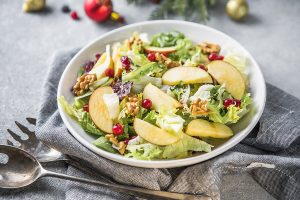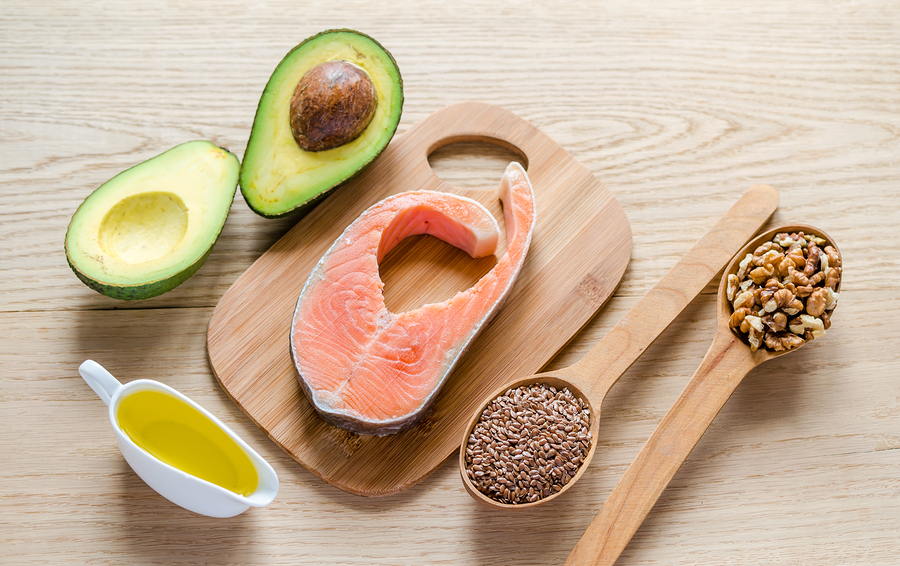Salmon and bananas can ‘reduce negative effects of salt’ in women – 5 other foods that can boost women’s health
When it comes to women’s health, nutrition is only a part of the picture – but it’s an important one
Conscious of how salt consumption might be impacting your health? Well, eating foods such as bananas, avocados and salmon could help reduce the negative effects of salt in women’s diets, according to new research.
The findings, published in European Heart Journal, a journal of the European Society of Cardiology (ESC), found diets rich in potassium were associated with lower blood pressure – especially for women with high salt intake. The researchers reckon this could be beneficial for heart health, and more so for women than men.

Some vitamins and minerals are especially beneficial for women
Of course, it’s still a good idea to be mindful of how much excess salt you consume – even if you are fond of bananas!
Wondering what other foods might be especially beneficial for women’s health? Here’s a look…
Leafy greens
Pauline Cox MSc – functional nutritionist, author and nutritional advisor to Wiley’s Finest sustainable fish oils – says: “Leafy greens are a super source of both magnesium and potassium.
“Magnesium is especially important, because subclinical magnesium deficiency is so common among women. Prolonged magnesium deficiency can lead to hypertension, atherosclerosis [thickening of the arteries], cardiovascular disease and osteoporosis.”

Leafy greens like broccoli and kale are a great source of magnesium
Melissa Snover, a registered nutritionist and founder of Nourished explains these vitamins and minerals can be particularly vital for women going through menopause.
“Vitamin deficiencies, which are a major consequence of menopause, can be combatted by eating leafy greens, which have also been shown to reduce fatigue and slow the rate of cognitive decline,” suggests Snover.
“High fibre foods, such as broccoli, leafy greens, and beans and lentils, can help combat high insulin levels by slowing down digestion and reducing the effect of sugar on the blood,” she adds. This could have a host of benefits for women’s health – including, for example, in managing conditions like polycystic ovary syndrome (PCOS), which can be associated with high insulin levels.
Beans

Beans boast a ton of health benefits
Cox says: “Beans are an important source of plant-based protein – and protein becomes increasingly important for women as they age. This is due to a reduced ability to break down protein into amino acids; key building blocks for building muscle, skin and other tissues of the body.
“Muscle loss, known as sarcopenia, [can] make women more prone to weight gain and increased blood sugars. This is because muscles mop up blood sugars, using up lots of energy that would otherwise get stored as body fat,” Cox adds.
“Retaining lean muscle mass is essential for women, particularly as we lose key growth hormones needed for muscle building, at an earlier age than men, usually from our 30s onwards.”
Tomatoes

Cherry tomatoes are a good source of lycopene
Cox notes heart disease is a leading cause of death amongst women. While there are lots of factors that influence our heart health, diet can also play a key role – and tomatoes could prove beneficial.
“Tomatoes are a super source of lycopene, a powerful antioxidant that may have benefits to heart health,” says Cox. “Optimising cardiovascular health is essential in preventing heart disease. Lycopene may reduce free-radical damage, as well as having beneficial impacts on cholesterol levels.”
Nuts
Snacking on a handful of nuts, or your favourite nut butter, offers excellent health benefits.
“I recommend a handful of nuts a day. It is important for everyone, including women and those assigned female at birth to include healthy fats in their diet. This is needed for absorption of fat soluble vitamins,” says Dr Nitu Bajekal (nitubajekal.com) a senior consultant obstetrician and gynaecologist.

Waldorf salad with lettuce, green apples, walnuts and celery
Cox adds: “Nuts are a great source of fibre, healthy fats and key vitamins such as vitamin E. Certain nuts, such as walnuts, offer an array of benefits. Rich in antioxidants, as well as being a super source of omega-3 fatty acids, walnuts have been shown to reduce inflammation, promote gut health.”
Nuts may also help support women managing certain menopause symptoms. As Snover explains, “nuts are high in flavanols, antioxidants, and Omega-3 fatty acids, which are excellent at helping alleviate feelings of brain fog, a common symptom of menopause, as they help reduce stress and inflammation in the brain.”
Wholegrains

Oats might help reduce cholesterol
Another expert approved healthy addition? Wholegrains, like oats, can be a super helpful part of women’s diets.
“Wholegrain consumption has been associated with being at a healthier weight and a lower risk of type 2 diabetes, cardiovascular disease , multiple cancers and other chronic diseases,” says Bajekal.
“Intact whole grains – such as spelt, quinoa, barley, oats, brown rice and buckwheat – contain significantly more fibre, protein and micronutrients than refined varieties. Oats are rich sources of B vitamins, vitamin E and other micronutrients. Oats also provide LDL cholesterol lowering benefits.”
The Press Association
Latest posts by The Press Association (see all)
- 6 mind sports to exercise your brain and keep you sharp - December 20, 2024
- Quiz: What classic Christmas food or drink are you? - December 20, 2024
- Leftover turkey and watercress pie - December 20, 2024
- Catherine and William choose family shot for Christmas card photograph - December 19, 2024
- The best books to watch out for in 2025 - December 17, 2024




















